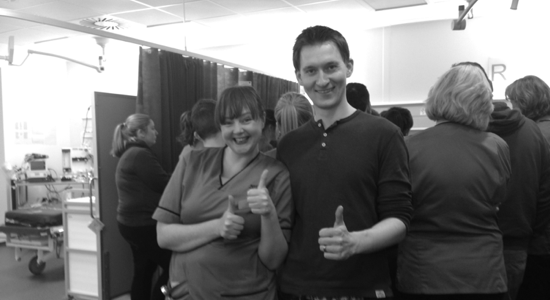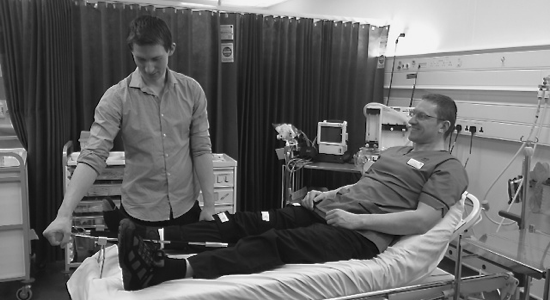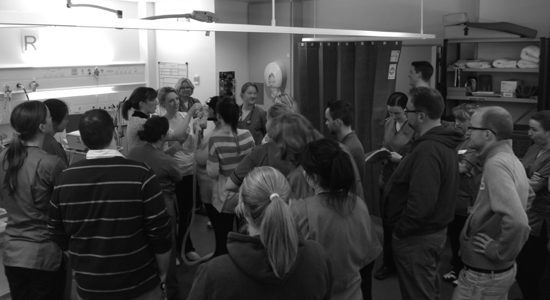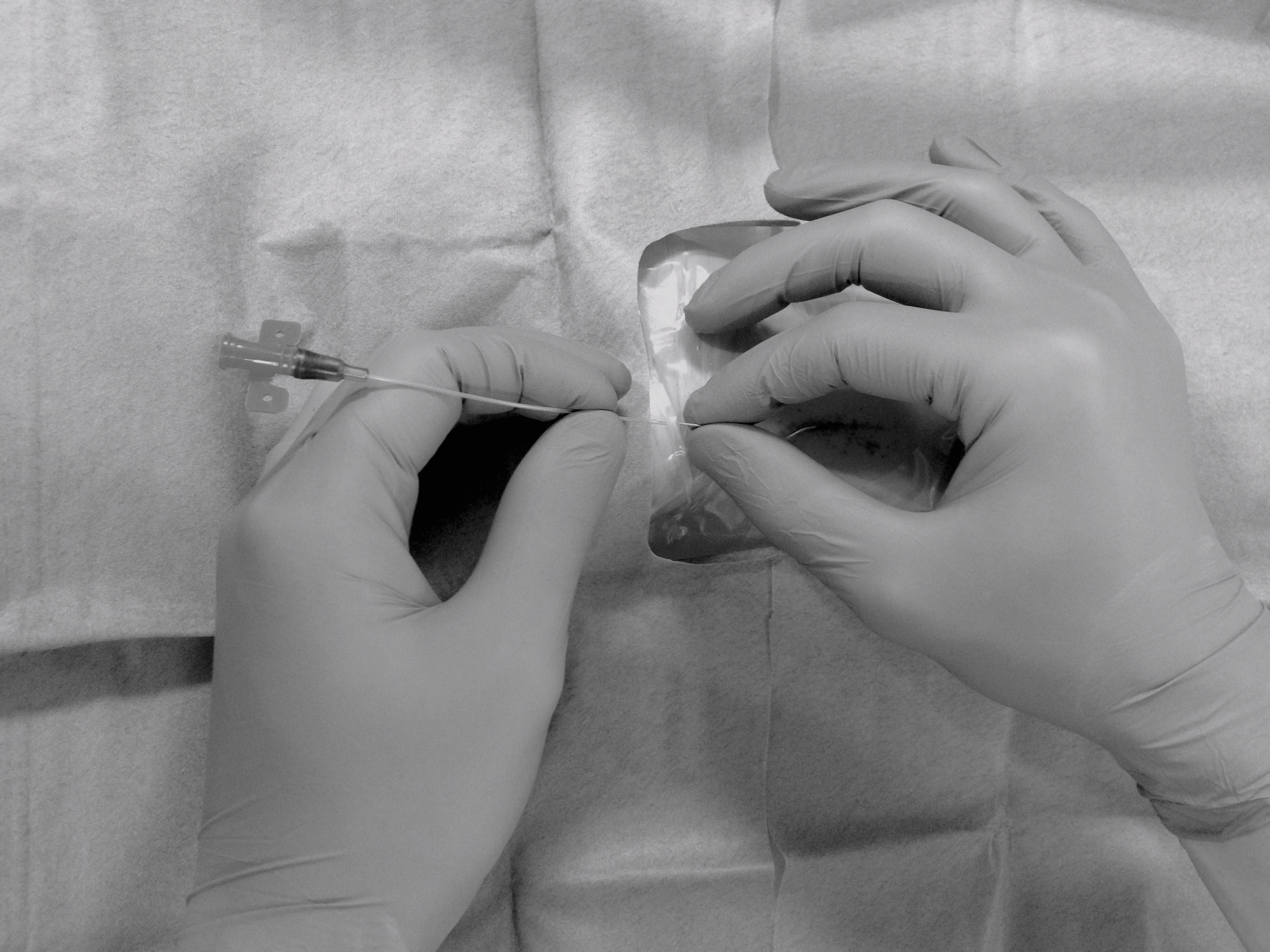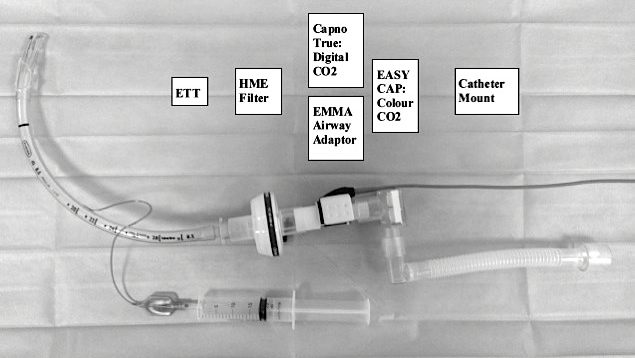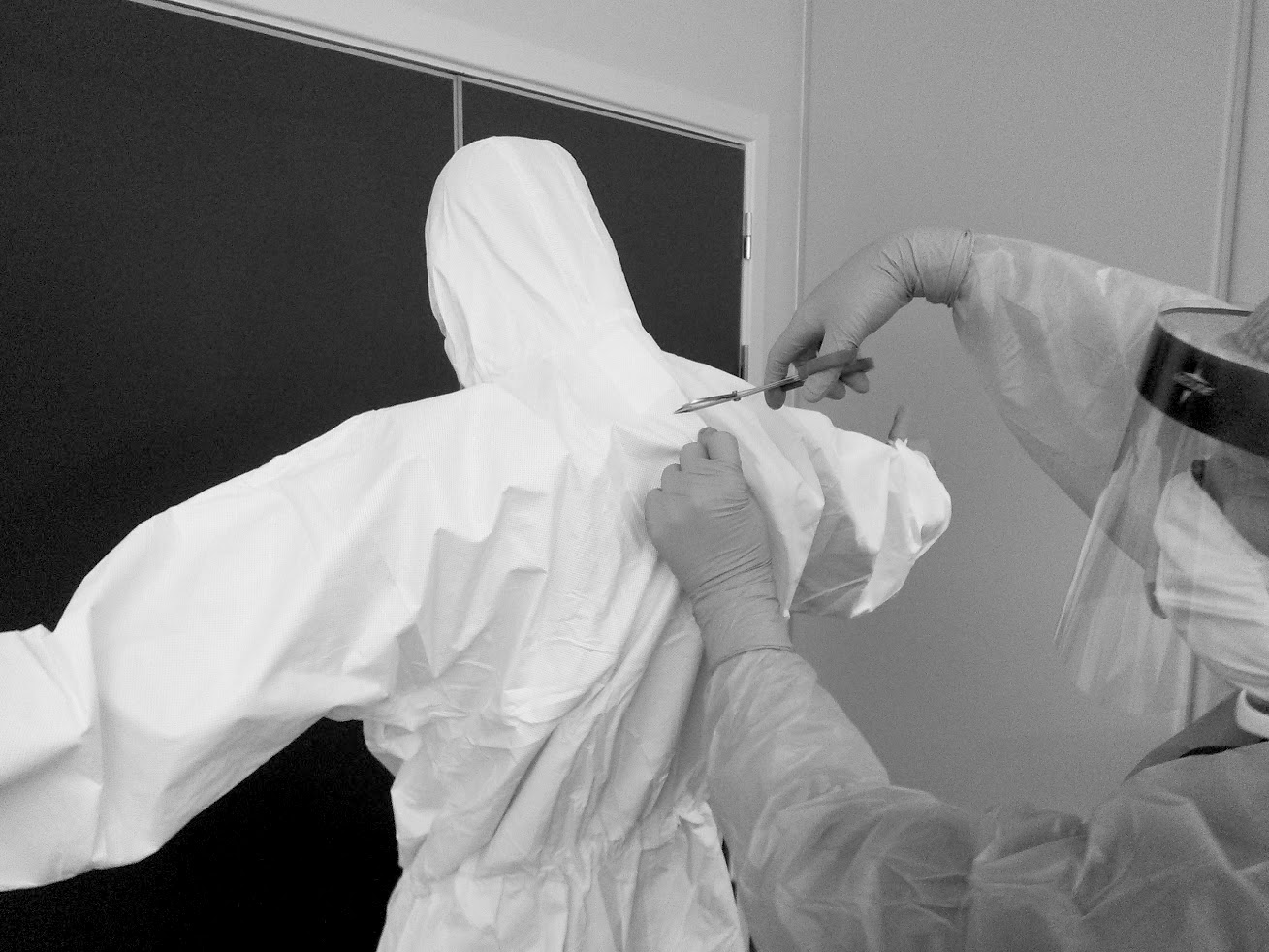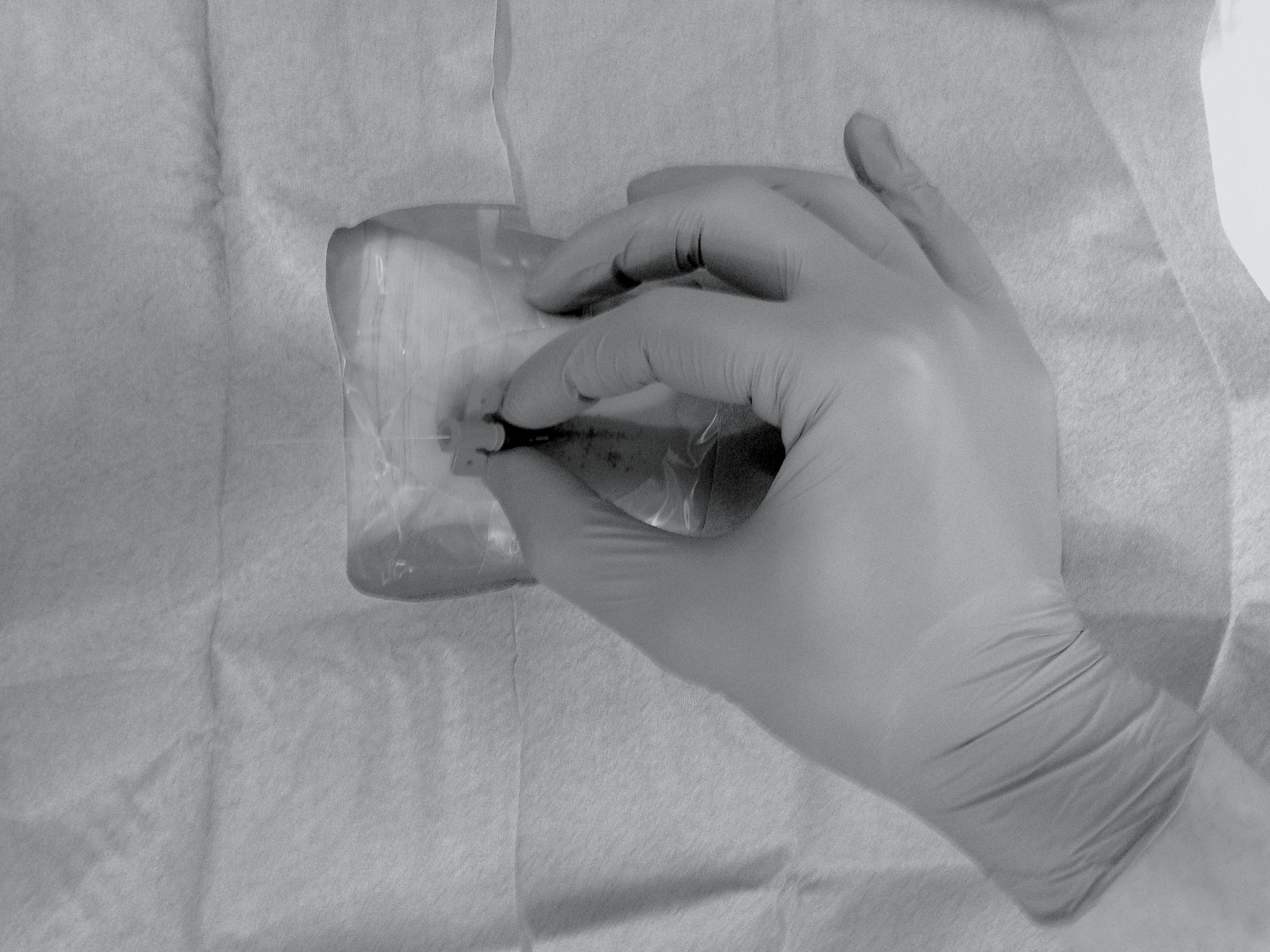Simulation Training
The Medic One Simulation Team was set-up in August 2013 and is led by ED Consultants Dr Craig Walker and Dr Shirin Brady. The Faculty also includes Dr Gareth Clegg and senior staff nurses Ian Lee, Jan Gilchrist and Caroline Hughes.
We aim to further enhance the strong knowledge base and working relationships between our medical, nursing and ancillary teams through clinical skills and drills training along with medium- and high-fidelity simulations around potentially challenging clinical scenarios.
There are currently 2 main facets to our Simulation training:
Resus Fridays
We provide once-weekly clinical skills and drills training in our Resuscitation Rooms in the Royal Infirmary from 8:05 to 8:45am. These are condensed, predominantly hands-on sessions and cover topics such as invasive lines, Non-invasive Ventilation (NIV), use of rapid infusion devices, chest drains, traction splints, cardiac arrest devices, airway management exercises and many, many others. These will be predominantly hands-on sessions, teaching not only the theory behind each topic but training in how to use our equipment in the most effect ways possible.
Topics will be covered more than once to enable members of each of the medical and nursing teams to participate. They are primarily aimed at the Resuscitation team on for that day but are also open to any other members of the ED Team who wish to join us, including medical and nursing students rotating through our department.
High-fidelity Simulation:
3-4 times per year. We take 2 Resus teams through real-time, challenging clinical scenarios (including aspects such as Major Haemorrhage, Rapid Sequence Intubation, Obstetric Emergencies, Surgical Airways and ED Thoracotomies, amongst many others). These sessions take place in our own Resuscitation Rooms which increases realism, allows us to use all our own equipment, streamline our processes and further improve our working environment. We have installed video links between our resuscitation areas and handover room and employ a variety of debriefing methods, including video debriefs. We also support our regional Registrar Teaching Programme and hold additional high-fidelity simulation sessions in the Clinical Skills Centre in the Chancellor’s Building.
The potential for our simulation training is huge. We have a tremendous opportunity to improve everything from our individual knowledge bases and practical skills to our team relationships and the very design of our Resuscitation areas, the equipment we use and how we use it.
We look forward to training and working with you.
Craig & Shirin.










